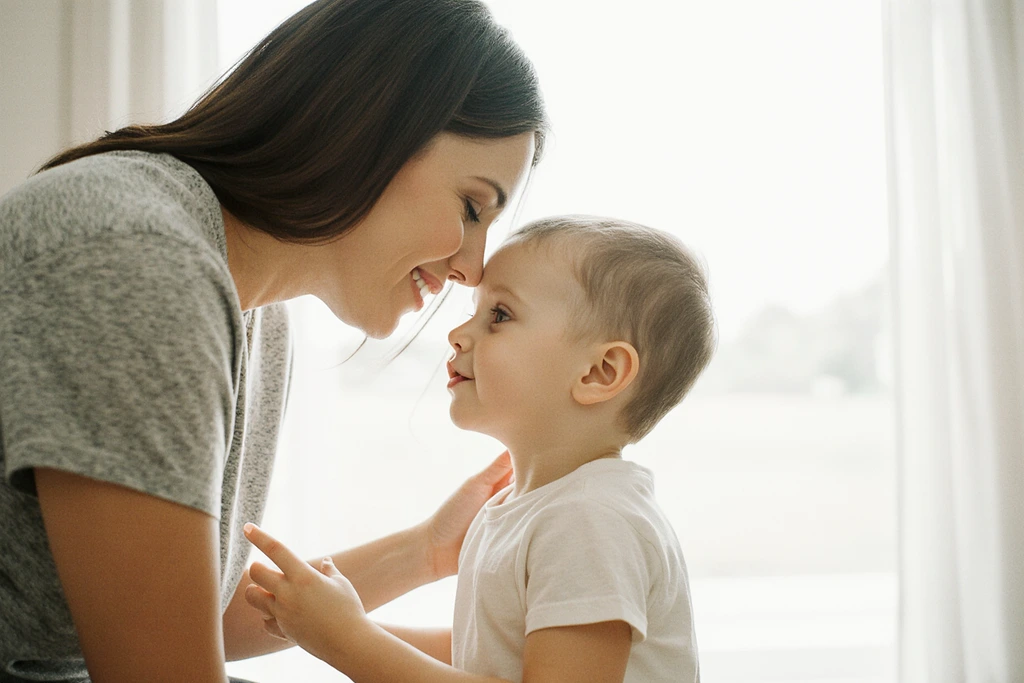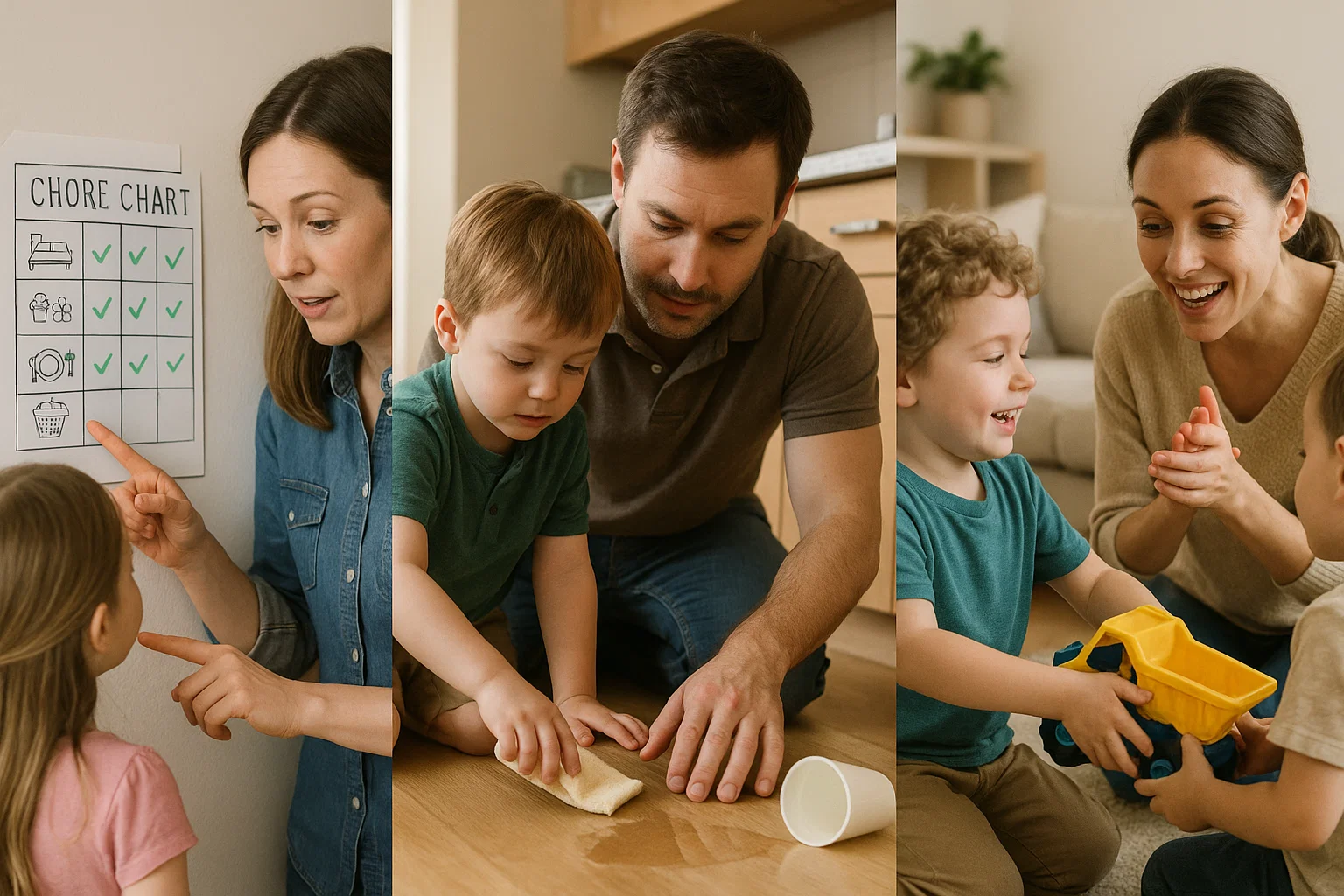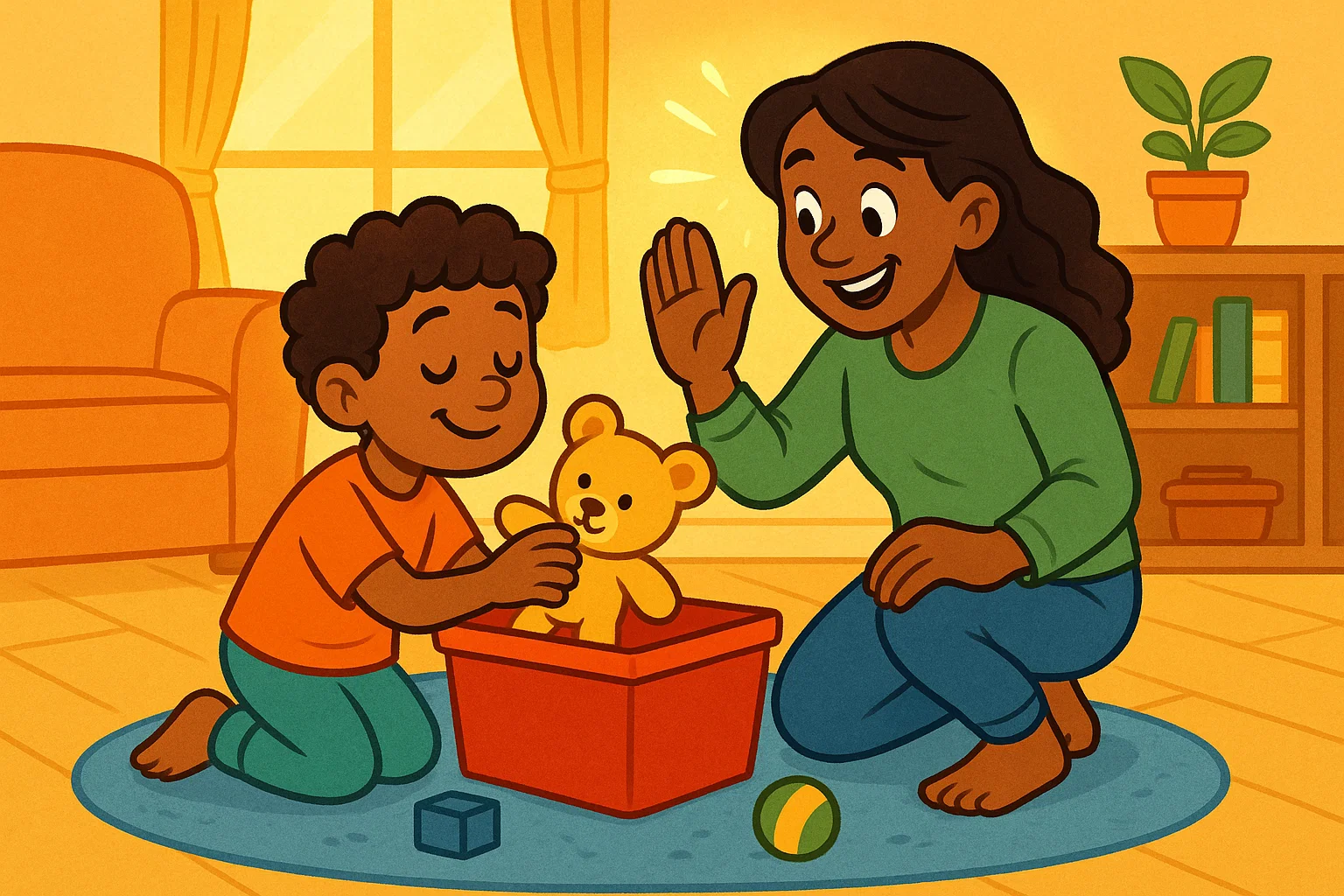Parenting presents countless moments when you need to guide your child’s behavior effectively without resorting to harsh punishment. Modern research from Canadian Paediatric Society consistently shows that positive discipline approaches not only stop unwanted behaviors but also teach valuable life skills that help children thrive throughout their development.
When you self-control your kid using non-abusive methods, you create an environment where learning happens naturally. This approach focuses on teaching rather than punishing, helping your child understand the connection between their choices and consequences while maintaining their dignity and emotional well-being.
Positive Discipline Benefits 🌟

Building Strong Parent-Child Bonds
Positive discipline strengthens the relationship between parent and kid by fostering mutual respect and understanding. When you choose to discipline through guidance rather than punishment, your child learns to trust that you’re there to help them navigate challenging situations.
Research from the American Academy of Pediatrics indicates that children who experience consistent, positive discipline develop stronger emotional connections with their parents. This bond becomes the foundation for effective communication throughout their childhood and beyond.
Consider this example: When your kid breaks a household rule, instead of immediately imposing punishment, you can ask them to help you understand what happened. This approach teaches problem-solving skills while reinforcing that you value their perspective.
Nurturing Emotional Intelligence
Children who experience positive self-control develop better emotional regulation skills compared to those subjected to harsh punishment methods. When you help your child identify their feelings and teach them appropriate ways to express emotions, you’re building their emotional intelligence.
A calm response to misbehavior teaches your kid that emotions are manageable and that there are constructive ways to handle difficult feelings. This skill proves invaluable as they encounter various social situations throughout their lives.
Fostering Self-Regulation Skills
Self-regulation develops when children learn to make good choices independently rather than simply avoiding punishment. Positive discipline helps your kid internalize values and develop their own moral compass.
When you consistently model calm behavior and provide clear expectations, your kid learns to regulate their own actions. This internal motivation becomes more reliable than external control measures and supports their development into responsible adults.
Effective Discipline Strategies ⚡

Setting Clear Expectations
Establishing clear, age-appropriate expectations forms the cornerstone of effective self-control. Your child needs to understand what behavior you expect before they can meet those standards consistently.
Create simple, specific rules that your child can easily remember and follow. For example, instead of saying “be good,” try “please use indoor voices when we’re inside the house.” This clarity helps your kid make better choices and reduces confusion about appropriate behavior.
Key Elements of Clear Expectations:
- Age-appropriate language and concepts
- Specific behaviors rather than vague requests
- Consistent application across different situations
- Regular reminders and reinforcement
Implementing Calm Consequences
Natural and logical consequences teach children about cause and effect while maintaining their dignity. When you implement consequences calmly, your child can focus on learning rather than defending themselves against anger or harsh treatment.
Effective consequences should directly relate to the behavior and help your child understand why certain actions aren’t acceptable. For instance, if your kid refuses to clean up their toys, the logical consequence might be temporarily removing those toys rather than imposing an unrelated punishment.
| Behavior | Natural Consequence | Learning Outcome |
| Refusing to wear coat | Gets cold outside | Understands importance of appropriate clothing |
| Not completing homework | Faces school consequences | Learns responsibility for academic tasks |
| Fighting over toys | Toys are temporarily removed | Practices sharing and cooperation |
Redirecting Behavior Creatively
Redirection works particularly well with younger children who may not yet have the impulse control to stop unwanted behaviors immediately. When you redirect your child’s attention to appropriate activities, you help them channel their energy positively.
This strategy proves especially effective when you recognize early signs that your kid is becoming overwhelmed or frustrated. By offering alternative activities or changing the environment, you can prevent misbehavior before it escalates.
Praising Positive Behavior
Consistent praise for good behavior reinforces the actions you want to see more often. When you acknowledge your child’s positive choices, you help them understand what behavior meets your expectations and builds their confidence.
Effective praise should be specific and immediate. Instead of simply saying “good job,” try “I noticed how patiently you waited your turn during the game. That showed great self-control.” This specific feedback helps your kid understand exactly what they did well.
The key is ensuring your praise feels genuine and focuses on effort rather than just outcomes.
Planning Dedicated One-on-One Time
Regular one-on-one time with your kid strengthens your relationship and reduces attention-seeking behaviors. When children feel connected to their parents, they’re more likely to cooperate and less likely to act out for attention.
This dedicated time doesn’t need to be lengthy or elaborate. Even 15-20 minutes of focused attention can make a significant difference in your child’s behavior and your relationship quality. During this time, let your kid choose the activity and give them your undivided attention.
Managing Stressful Parenting Moments 🧘

Taking a Pause Before Reacting
When your child’s behavior triggers strong emotions, taking a brief pause can prevent you from responding in ways you might regret. This moment of reflection allows you to choose a response that aligns with your parenting values rather than reacting impulsively.
A simple technique involves taking three deep breaths before addressing the situation. This brief pause gives you time to assess what’s really happening and choose an effective response that will help your kid learn.
Stepping Back for Perspective
Sometimes challenging behavior reflects your child’s developmental stage rather than deliberate defiance. When you step back and consider your child’s age, temperament, and current circumstances, you can respond more appropriately to their needs.
Ask yourself: “Is this behavior typical for my child’s age?” or “What might my child be trying to communicate through this behavior?” This perspective shift often reveals underlying needs that, when addressed, resolve the behavioral issue.
Practicing Self-Compassion
Parenting is inherently challenging, and every parent makes mistakes. When you practice self-compassion, you model healthy emotional regulation for your child and maintain the emotional resources necessary for consistent, positive self-control.
Remember that learning effective discipline strategies takes time and practice. Each challenging moment presents an opportunity to grow as a parent and strengthen your relationship with your kid.
Long-Term Discipline Benefits 🌱
Fostering Child Independence
Children who experience positive self-control develop greater independence because they learn to make good choices based on internal motivation rather than fear of punishment. This independence serves them well as they navigate school, friendships, and eventually adult responsibilities.
When you teach your kid to think through consequences and make thoughtful decisions, you’re preparing them for situations where you won’t be there to guide them directly. This skill becomes increasingly important as they grow older and face more complex social and academic challenges.
Building Resilience in Children
Positive discipline approaches help children develop resilience by teaching them that mistakes are learning opportunities rather than personal failures. When you respond to misbehavior with patience and guidance, your kid learns to bounce back from setbacks and try again.
Children who experience supportive self-control develop better problem-solving skills and greater emotional resilience. They learn that challenges can be overcome with effort and support, building confidence in their ability to handle difficult situations.
Promoting Lifelong Positive Relationships
The communication patterns and conflict resolution skills your child learns through positive self-control carry forward into all their relationships. When you model respectful communication and collaborative problem-solving, you teach your child how to maintain healthy relationships throughout their life.
Adults who experienced positive discipline as children often report better relationships with family, friends, and colleagues. They’ve learned to communicate needs clearly, resolve conflicts constructively, and maintain emotional regulation during challenging interactions.


